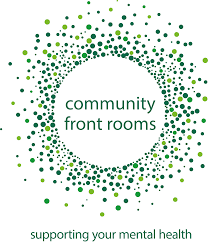
You Are Not Alone
The pace of change during my lifetime has been astounding. Alongside the many wonderful scientific and technological advances that have made all our lives so much easier than those that lived by previous generations we now seem to live in much more stress filled times, all of which impacts on our mental wellbeing.
Why is it for example:
- we have more gadgets to do things for us and less time for ourselves and others?
- we have more methods of communicating with each other and yet can feel more isolated?
- we have every possible thing we could ever want available to us in local shops and via the internet yet are still not satisfied?
- we have access to so much entertainment and yet can still feel bored, isolated and alone?
- the grass appears to be greener on the other side of the fence?
All of this has been exacerbated by the Covid-19 pandemic.
Mental wellbeing has been one of the most talked about impacts of the Covid-19 pandemic.

It does not matter if you are 6 or 60, whether we acknowledge it or not, all of our lives have been impacted upon.
The degree to which that impact manifests itself varies from person to person, some find it easy to share their feelings and seek support and others are more reticent to do so.
Your mental wellbeing – is as important as your physical health.
Looking after your mental wellbeing is important not only for you but also for those around you. When you feel at odds with the world it not only affects your ability to cope but also impacts on others.

The stresses caused by loss of income, furlough, home schooling, bereavement, shielding, being locked down etc impact upon and manifest themselves in different ways.
Not wishing to lose face is a natural reaction, as human beings we are extremely proud creatures. But this can very quickly become a very dangerous response.
Your mental wellbeing – the warning signals too look out for.
You may think that everything is fine, and despite it all, you are your usual bubbly self and coping. Being aware of the warning signs is the first step to managing your mental wellbeing. So what are the signs to keep an eye open for?
- Irritability
- Isolation
- Tearful
- Withdrawal from things you used to like
- Drinking/eating/drugs too much
- Poor sleep
- Mood changes
- Loss of energy
- Feeling anxious
All of the above are just some of the indicators that something is not quite right with your life and of course the additional pressures of lockdown will contribute towards heightening them.
Your mental wellbeing – some strategies to help improve/manage it.
Managing your mental wellbeing is important but how do you do that? The list of strategies below is not exhaustive and range from simple self help measures to seeking professional support. Only you can determine what is right for you but it is vital that you are honest with yourself.
- Relaxation sessions
- Meditation
- CBT(Cognitive Behavioural Therapy) courses
- Getting out in nature (we are so lucky here to be able to be able to within minutes walk in open countryside or to the sea)
- Listen to music or a story
- Read a newspaper instead of social media
- Watch ’Winterwatch’ – a recent programme was all about wellbeing
- Switch off your mobile phone an hour before going to bed
- Talk to someone, your partner, a close friend or even a stranger – be brave!
- Remember there is always change in life – you can manage it with the right support

It has been shown that loneliness can be the start of mental health challenges. It is important to keep in contact with family, friends and your wider community.
The old adage ‘A problem shared is a problem halved’ is borne out by research carried out by Age UK, which showed that when people share worries with others, it can really improve their situation:
- Around 3 in 10 adults share their worries (29%). Of these, over a third (36%) feel brighter as a result
- A quarter (26%) feel relief when they have confided in someone about a problem
- 8% feel that the problem has gone away once shared
It is clear from these statistics that most of us are not keen on sharing our concerns but that once you overcome that reticence the positive impact on wellbeing is significant. So it’s good to talk!
Your mental wellbeing – where to seek help.
- Don’t be afraid to talk to your GP – he/she has a wealth of knowledge and experience
- Drop into the Burrough Harmony Centre for Mental Health and Wellbeing at The Assembly Rooms on Gundry Lane – you will get a warm welcome and realise you’re not alone in all this – everyone is being affected by the Covid-19 pandemic.
- NHS Community Front Rooms – CFRs are welcoming, informal, safe spaces where you can discuss your problems.
- NHS steps2wellbeing – offer psychological therapies for mental health conditions such as depression, anxiety and stress.
- Samaritans – are available day or night, for anyone who’s struggling to cope, who needs someone to listen without judgement or pressure.

Some of the things that impact on our mental wellbeing can often be easily solved with the right support and advice. For example if your worries are centred on:
- Benefits
- Work
- Debt and Money
- Consumer issues
- Housing
- Family
- Law and courts
- Immigration
- Health
Citizens Advice is there to help – and it is free.
“We can all face problems that seem complicated or intimidating. At Citizens Advice we believe no one should have to face these problems without good quality, independent advice. That’s why we’re here: to give people the knowledge and the confidence they need to find their way forward – whoever they are, and whatever their problem.”

Bridport is an amazing community and there are people out there who are going through the same issues as you. But, more importantly there are people out there who can help you. It is important to remember you are not alone and support is at hand.
Some Useful Contacts



NHS Community Front Rooms
https://www.dorsethealthcare.nhs.uk/access-mental-health/community-front-rooms

Steps2Wellbeing





